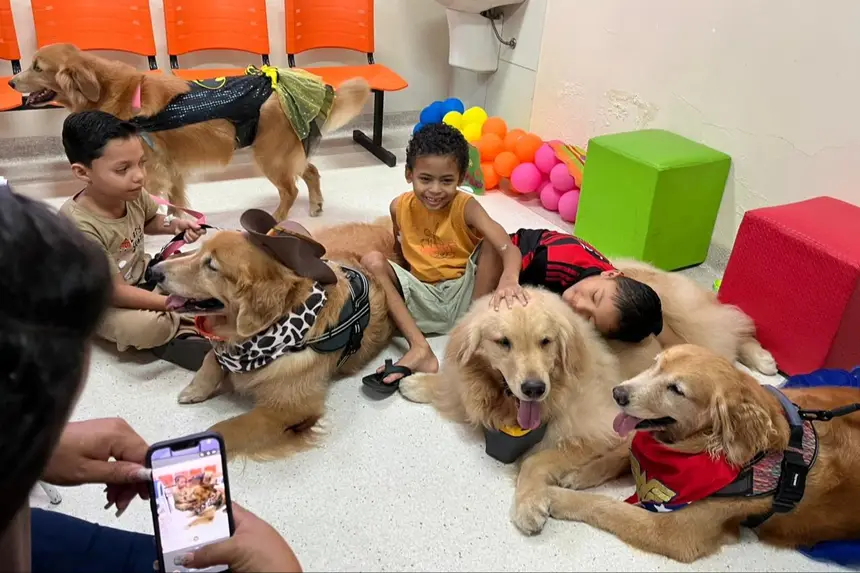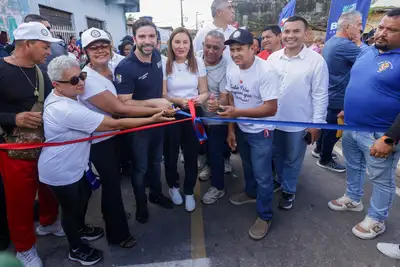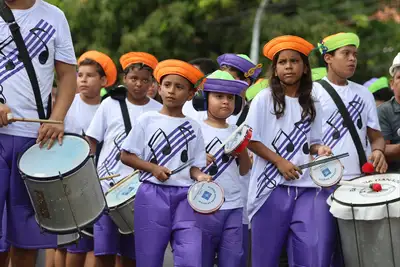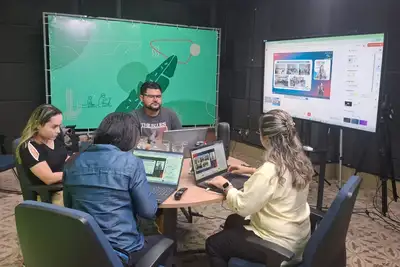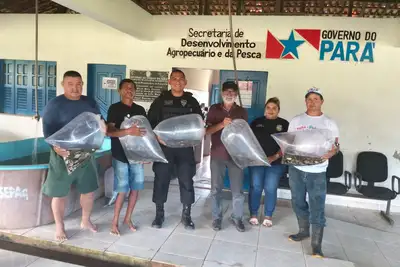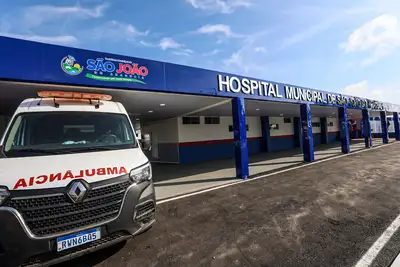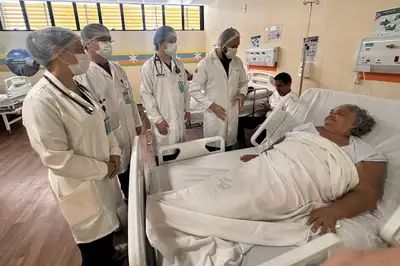Children's Oncology Hospital promotes actions that highlight humanization in health care
Musical activities, pet visits, training sessions, and educational projects marked the program that highlighted the National Humanization Policy and user-centered care
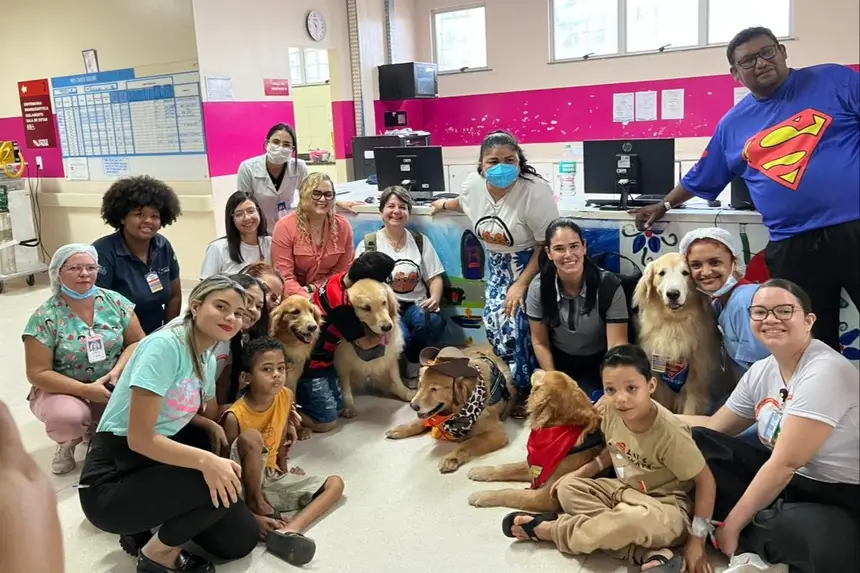
From November 24 to 28, the Octávio Lobo Children's Oncology Hospital (Hoiol) celebrated Humanization Week, in reference to National Humanization Day, which takes place this Saturday (29). Patients and families participated in activities such as musical events, pet visits, clown performances, and beauty services. Meanwhile, health professionals received guidance on the National Humanization Policy (PNH). The event highlighted the importance of multidimensional care and sought to strengthen the culture of comprehensive care.
This year, the activities were developed around the theme "Humanized Care: Welcoming Care" and indicated that welcoming care is the result of a transversal public policy known as HumanizaSUS. Reformulated in 2003, the PNH emphasizes the need for interaction between top management, health professionals, and users, including the support network. It reinforces the transition from assistance "to" the user to assistance "with" the user, ensuring their rights and duties in favor of a more qualified Unified Health System (SUS).
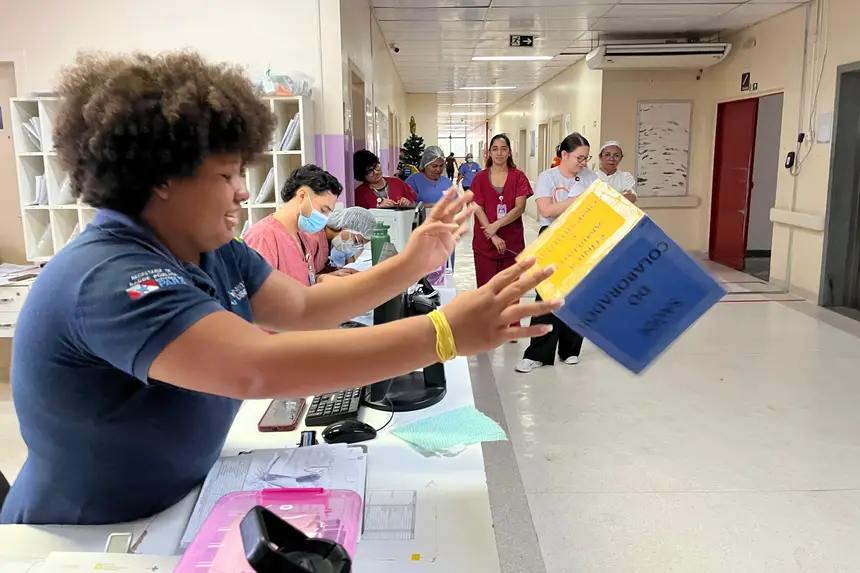
The Humanization coordinator, Natacha Cardoso, explains that the proposal arose from the perception that, despite institutional integration and the recognition of humanization as an institutional value, many professionals are unaware of the depth of this policy. According to the professional, humanized care is mistakenly associated exclusively with the Humanization sector, which, in the case of pediatric oncology, represents a differential.
“We promote the well-being of the user not only from a biological and therapeutic perspective but also by integrating their social dimension and interaction with the health team and family. This approach reflects the trichotomy of the human being, considering the importance of the well-being of the body, mind, and spirit. Thus, we seek to encompass all dimensions that complete the human being, including the soul, through therapeutic treatments, in order to provide the user and their family with the best possible experience in our institution, ultimately aiming for healing,” highlighted Natacha.
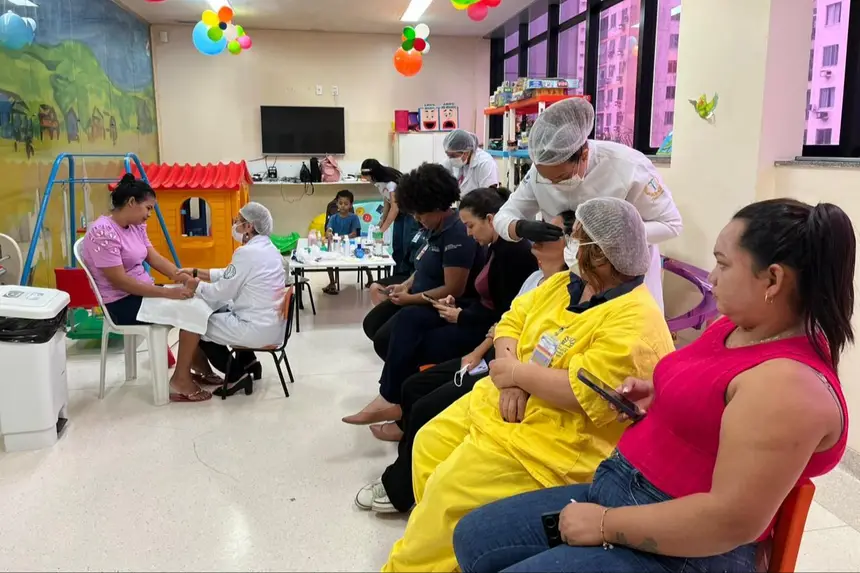
The collaborators learned about the Expanded Clinic, which considers the individual in the biopsychosocial and family context, in co-responsibility, autonomy, and shared treatment construction. “We brought curiosities about projects carried out, initiatives that they themselves execute but often do not recognize as part of this guideline. The Expanded Clinic invites us to go beyond the restricted view of the biological and physical treatment, broadening the understanding of care to include well-being, socialization, and the integral experience of the user,” explained the humanization coordinator.
This approach is part of Hoiol's routine, such as the Hospital Class, which guarantees the child's right to education; playful activities, which ensure, according to the Statute of the Child and Adolescent, the right to play; and other important projects, such as Creative Learning, among various initiatives that materialize broader care.
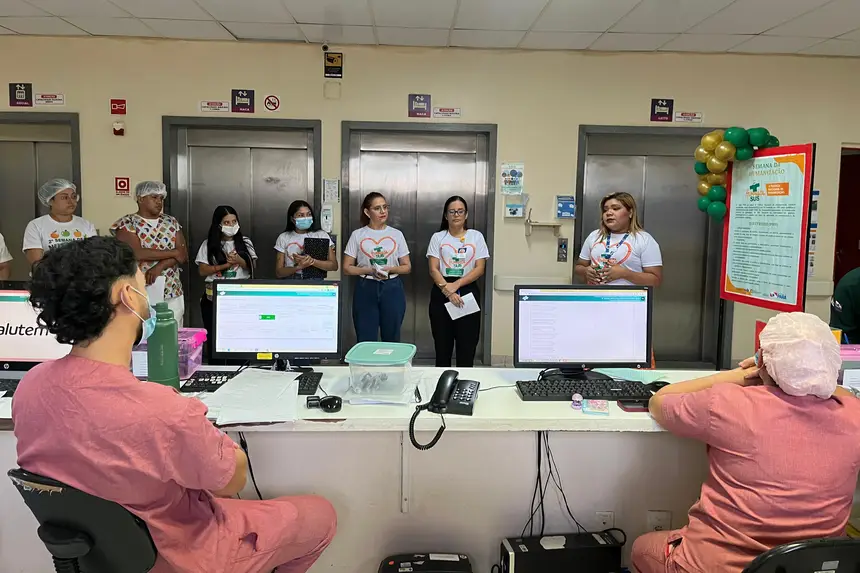
The nursing technician, Kaio Lobato, 25 years old, states that the training on the Humanization Policy contributed to improving professional practice and the relationship with patients. “Although I knew about the existence of the PNH, I did not know how it was being applied within the hospital and the projects carried out by the Humanization team. But I realized that I am part of this and that I was contributing to the implementation of the policy and with increasingly better assistance. I felt good and wanted to further improve the care provided to patients,” said Kaio.
The assistant for autistic children, Maria Gondin, 44 years old, believes that the activities make a difference for patients and accompanying mothers during hospitalization. “When the team comes in with a little toy, delivers a word, holds a musical event, or tells stories, it brings support and, at the same time, happiness to the children. I have experienced this, and it makes a big difference for both my son and me; the children are happy. This is very important for us mothers and for the patients, to have the Humanization team present with us,” she said.
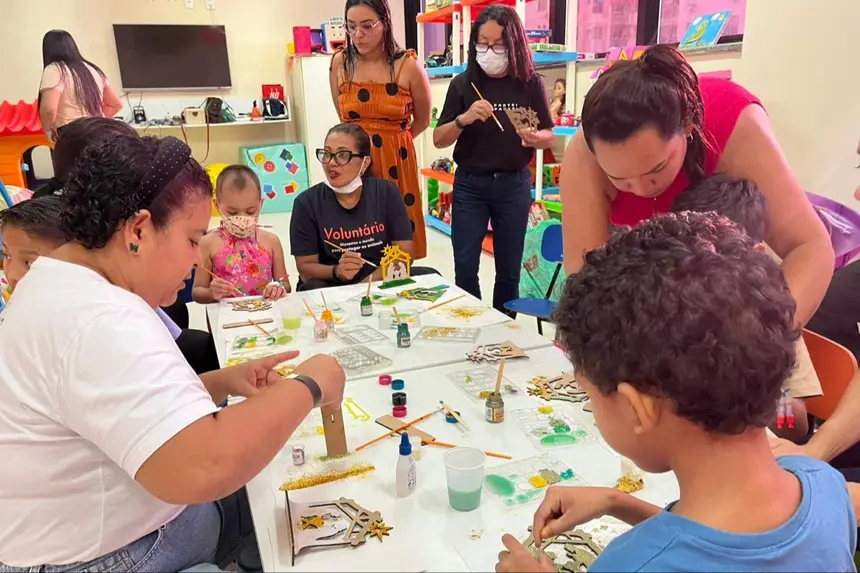
Text: Leila Cruz - Ascom Hoiol



